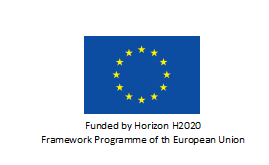AURORA 2021
Actionable eUropean ROadmap for early-life health Risk Assessment of micro- and nanoplastics

- Duración
- 01/04/2021 - 31/03/2026
- Coordinador
- Martine Vrijheid
- Financiadores
- Horizon 2020 - European Commission
The scale of micro- and nanoplastic pollution (MNP) is becoming increasingly clear yet little is known about how this pollution impacts health.
The AURORA project will deliver an actionable European roadmap for early-life health risk assessment of MNPs to support regulation of MNPs and the products and processes that generate secondary MNPs, and development of safer alternatives.
We will focus on MNP exposures and toxicological and health effects during pregnancy, in utero, and in early life. These periods are critical for development and health later in life and are of heightened vulnerability to environmental insults. We have recently shown that MNPs are likely to cross the placental barrier in vitro and in vivo, underlying the urgent need to understand the impact of MNPs on reproductive and early-life health.
AURORA will do so by significantly enhancing exposure assessment capabilities for measuring MNPs and MNP-associated chemicals (e.g. additives) in tissues relevant for early-life development (placenta, cord blood, amniotic fluid, meconium, fetal tissue). It will take a unique approach by combining in-depth characterization methods (microscopy and spectroscopy) and scalable methods (mass-spectrometry) to develop methods for both detailed and large-scale toxicological, exposure assessment, and epidemiological studies. This will be combined with a novel tiered-testing approach and epidemiological investigations to provide the first extensive evaluation of maternal and fetal MNP exposures and health perturbations, including placental function, immune-inflammatory responses, oxidative stress, accelerated aging, endocrine disruption, and child development.
In the course of developing and applying the tools and methodological workflows of the AURORA research program, we will create a risk assessment framework specific to MNPs and identify the remaining knowledge gaps and priorities needed for comprehensively evaluating the impact of MNPs on early-life health.
Funding
Total: 5,996,315.00 €
ISGlobal: 310,703.75 €
Nuestro equipo
Coordinator
-
 Martine Vrijheid Research Professor y directora del Programa de Medio ambiente y salud a lo largo de la vida
Martine Vrijheid Research Professor y directora del Programa de Medio ambiente y salud a lo largo de la vida
ISGlobal Team
-
 MARIONA BUSTAMANTE Staff Scientist
MARIONA BUSTAMANTE Staff Scientist -
Payam Dadvand
Otros proyectos
Ver proyectos pasadosMCC-Spain
Estudio multi-caso control poblacional, incluyendo tumores de alta incidencia en España
Proyecto INMA - Infancia y Medio Ambiente
HELIX
Novel tools for integrating early-life environmental exposures and child health across Europe
EGG/EAGLE
Early Genetics Growth/Early Genetics and Lifecourse Epidemiology
PACE
Pregnancy and Childhood Epigenetics
LIFECYCLE
Early-life stressors and LifeCycle health
OMEGA-NET
Network on the Coordination and Harmonisation of European Occupational Cohorts
BiSC (Barcelona Life Study Cohort)
HARMONIC
Health effects of cArdiac fluoRoscopy and mOdern radIotherapy in paediatriCs
Mobilise-D
Connecting digital mobility assessment to clinical outcomes for regulatory and clinical endorsement
EARLY-ADAPT
Signs of Early Adaptation to Climate Change
COVICAT
Cohorte Covid-19 en Cataluña
ATHLETE
Advancing Tools for Human Early Lifecourse Exposome Research and Translation
CONTENT
Cohorte de COVID-19 en España: dinámica social, salud mental y desigualdades
EUCAN-Connect
A federated FAIR platform enabling large-scale analysis of high-value cohort data connecting Europe and Canada in personalized health
OBERON
An integrative strategy of testing systems for identification of EDs related to metabolic disorders
EXPANSE
EXposome Powered tools for healthy living in urbAN SEttings
ONES
Fine Particle Matter, Fetal Growth, and Neurodevelopment: Examining Critical Windows of Susceptibility
AIR-NB
Pre-natal exposure to urban AIR pollution and pre- and post-Natal Brain development
El impacto de la exposición al metaboloma de esteroides materno-fetales en el crecimiento infantil y los resultados neurológicos (IGRO)
Project Code: PI21/01269
NutinBrain
The role of seafood and nut consumption on human neurodevelopment from pregnancy to adolescence
ALTER - Contaminación del aire, microbiota intestinal y neurodesarrollo en los primeros 24 meses de vida
Project Code: PI21/01278
Alimentación S2: por una dieta saludable y sostenible
Estudio sobre la exposición a nano y microplásticos a través del agua de consumo de Barcelona
¿Es mejor consumir el agua de grifo si queremos reducir la exposición a nano/micropláticos?
UrbanKids
Urban and social environment and childhood obesity – a natural moving2health experiment
Laboratorio Ciudadano de Salud Urbana
Planificación urbana, medio ambiente y salud
Characterizing Oral Exposure to Nanoplastics and Microplastics
Characterization of Oral NMP Exposure
iGenCO
In-Depth Genomics and Cross-Omics Analysis for Undiagnosed Rare Diseases on a User-Friendly Collaborative Platform
5G expOsure, causaL effects, and rIsk perception through citizen engAgemenT
GOLIAT
CityExposomeCat
An Exposome Approach to Urban Health: Individualized Environmental Exposure Assessment in an Adults Population Cohort Study (GCAT)
TwinAir
Digital Twins Enabled Indoor Air Quality Management for Healthy Living
Subclinical Infections in Children and Long Term Health Effects
Infection acquisition in early life and health outcomes in childhood - MARATO TV3
Exposición prenatal a sustancias poli y perfluoradas en agua de consumo y neurodesarrollo en el inicio de la vida
Project Code: PI20/00829
Base genética materna y fetal de la función placentaria
Project Code: PI20/01116
TOLIFE
Combining Artificial Intelligence and smart sensing TOward better management and improved quality of LIFE in chronic obstructive pulmonary disease
BWater
Drinking Water in Barcelona: Sustainability and Health Impact Assessment
CUPID
intoDBP
Innovative Tools to Control Organic Matter and Disinfection Byproducts in Drinking Water
FINDOOR
FTIR spectroscopy for real-time detection of bacterial outbreaks and the rapid identification of pathogenic serotypes, relapsing infections and antibiotic resistance
OccRF-Health
Occupational exposure to radiofrequency electromagnetic fields: From exposure assessment to study of health in workers and their offspring
EPHOR
Exposome Project for Health and Occupational Research
EXPONIT
Analysing and studying how night shift work affects workers' circadian rhythms and health
IHEN
International Human Exposome Network
El microbioma intestinal y la disrupción circadiana
Un estudio epidemiológico molecular sobre enfermedades cardiometabólicas y salud mental
B-Triage
Una prueba en el punto de atención para la estratificación del riesgo de los pacientes febriles basada en los niveles de sTREM-1
e-QuoL
e-health tools to promote Equality in Quality of Life for childhood to young adulthood cancer patients, survivors and their families
AM-MENTAL
¿Cómo afecta a tu salud mental que tu jefe o jefa sea un algoritmo?
UBDPOLICY
The Urban Burden of Disease Estimation for POLICY Making





